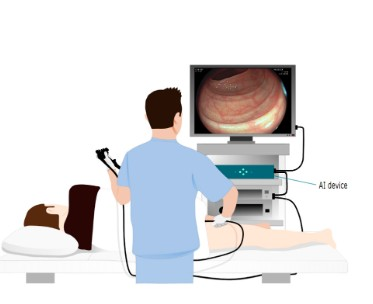AI-assisted colonoscopies may raise deskilling risk among doctors: The Lancet
By IANS | Updated: August 13, 2025 16:15 IST2025-08-13T16:09:35+5:302025-08-13T16:15:05+5:30
New Delhi, Aug 13 Amid increasing adoption of Artificial Intelligence (AI) in medicine, a new study published in ...

AI-assisted colonoscopies may raise deskilling risk among doctors: The Lancet
New Delhi, Aug 13 Amid increasing adoption of Artificial Intelligence (AI) in medicine, a new study published in The Lancet Gastroenterology and Hepatology journal, showed that doctors regularly performing AI-assisted colonoscopies may lose their ability to detect precancerous growths (adenomas) in the colon without AI assistance.
Colonoscopy, typically performed by an endoscopist, enables the detection and removal of adenomas, leading to the prevention of bowel cancer.
Numerous trials have shown that the use of AI to assist colonoscopies increases the detection of adenomas, generating much enthusiasm for the technology.
However, there is a lack of research into how continuous use of AI affects endoscopist skills, with suggestions that it could be either positive, by training clinicians, or negative, leading to a reduction in skills.
“To our knowledge, this is the first study to suggest a negative impact of regular AI use on healthcare professionals' ability to complete a patient-relevant task in medicine of any kind. Our results are concerning, given that the adoption of AI in medicine is rapidly spreading,” said Dr Marcin Romańczyk, Academy of Silesia from Poland.
The study took place at four colonoscopy centres in Poland between September 2021 and March 2022.
A total of 1,443 colonoscopies were conducted without AI; 795 before the introduction of regular AI use and 648 after AI implementation. The colonoscopies were performed by 19 experienced endoscopists who had conducted over 2,000 colonoscopies each.
The average rate of adenoma detection at non-AI-assisted colonoscopies significantly decreased from 28.4 per cent (226/795) before AI exposure to 22.4 per cent (145/648) after AI exposure, corresponding to a 20 per cent relative and 6 per cent absolute reduction in adenoma detection rate.
In the AI-assisted colonoscopies, there was a 25.3 per cent (186/734) adenoma detection rate.
The team also acknowledged some limitations, including that the observational nature of the study means that factors other than the implementation of AI use may have influenced the findings.
Romańczyk called for more research into the impact of AI on health professionals’ skills across different medical fields.
Disclaimer: This post has been auto-published from an agency feed without any modifications to the text and has not been reviewed by an editor
Open in app